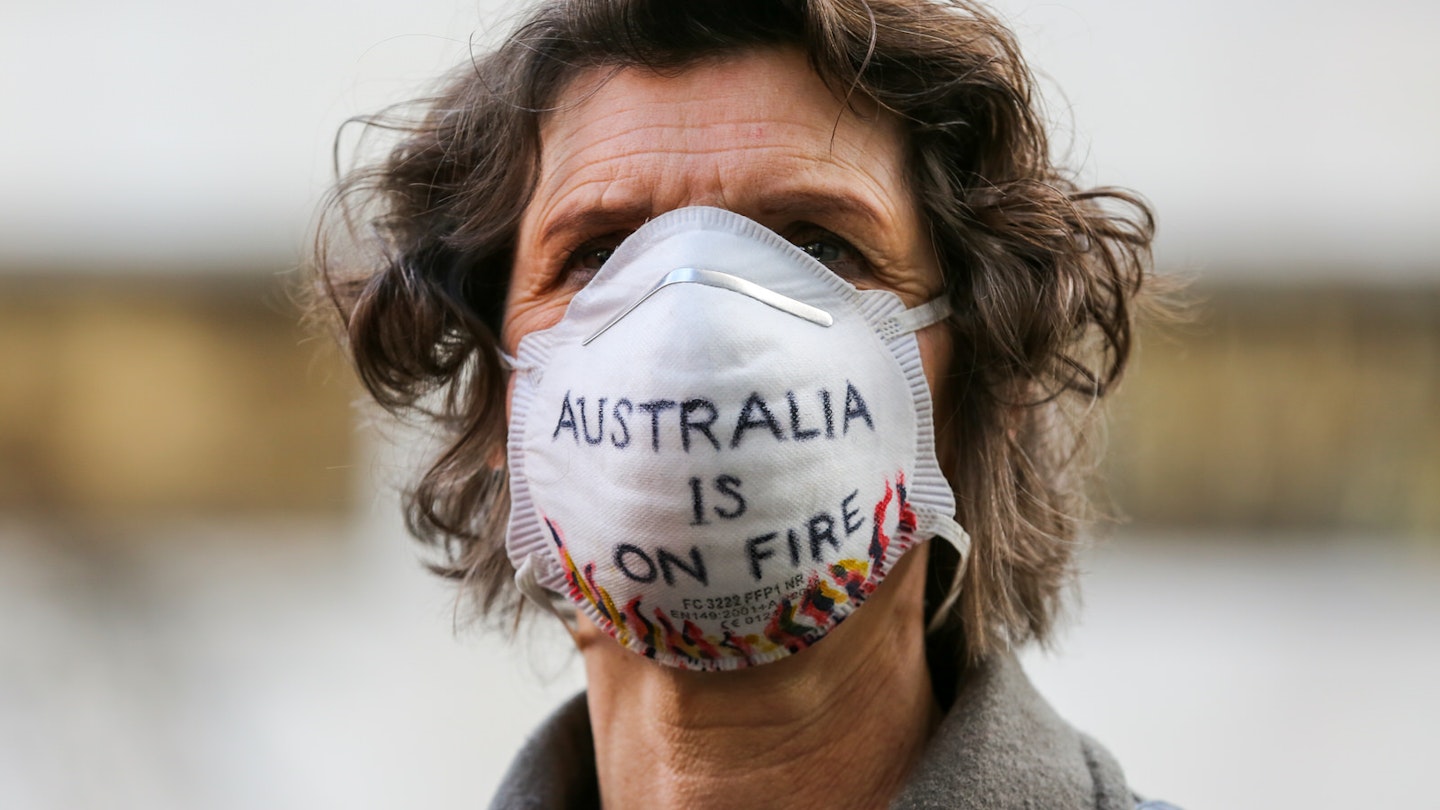Should You Travel to Australia During the Bushfire Crisis?
Australia’s current bushfire season has been the worst to date, raising critical questions for travellers. Should you still head Down Under? We unpack the questions many people are asking themselves and explore different ways travellers can assist in Australia’s recovery.

Should You Travel to Australia Right Now?
Yes, but make an informed decision. Australia is a vast country with diverse geographies and climates. The areas affected by the fires are localized. There is plenty of information available regarding which regions have been impacted. Here’s where you can check the latest fire information for each affected state and territory:
The areas most affected this summer include coastal New South Wales and neighboring Victoria, along with some parts of South Australia in the Adelaide Hills and Kangaroo Island.
It’s essential to stay aware that air quality has been severely impacted, which affects broader areas beyond the above-mentioned regions. This has become a significant concern for individuals with respiratory conditions. Reports indicate that Sydneysiders and Melburnians are now donning P2 air pollution masks to protect themselves when outdoors due to the thick bushfire smoke.
Change Your Travel Plans if Necessary
If you’re planning to travel to an affected area, consider heading to other parts of the country that remain unaffected. Hobart in Tasmania is currently hosting its annual summer festival MONA FOMA; outback New South Wales is preparing for the Tamworth Country Music Festival; while Perth gears up for this summer’s Fringe World.
Some towns, such as the isolated hamlet of Mallacoota, remain unreachable, prompting holidaymakers to seek alternative camping or accommodation options in the region.

Stay Informed on Where You Can Travel
Reliable on-the-ground information is your best ally. Luckily, it is widely shared through accurate, up-to-date emergency alert apps, local websites (specific to whether you’re visiting Victoria, South Australia, or Tasmania), radio stations, television reports, and word of mouth—commonly referred to as the bush telegraph in Australia. Fire Danger Ratings are prominently displayed on roadside signs and in all media reports. In typical straightforward Aussie vernacular, the danger levels range from ‘low’ to ‘catastrophic’. If the warning level is high, or you’re instructed to evacuate, take heed. Your safety is paramount.

Find Out Where to Spend Your Tourist Dollars
Once an area has been cleared of fire risk, those places will require the financial contribution of tourism to recover. If you’re backpacking on a budget, consider reaching out and volunteering for a day or two if possible. Check out the Empty Eskies campaign to discover which communities are ready for your help now.

Is It Best to Avoid Australia Altogether This Year?
Some travellers may opt to explore other destinations this year, and indeed Australia suspended its New Year’s marketing campaign ‘Matesong’ in response to the crisis. However, Australia’s response to this national disaster stands as a testament to resilience and community spirit. Recent events have reinforced the idea that Australians are remarkably resilient, wonderfully generous, and steadfast in preserving their incredible country.
Australia Tourism emphasizes: “It is more important than ever to support Australian tourism providers, whether in unaffected regions or those that will recover from these bushfires in the months and years to come. The best way to support Australia, Australian communities, and the tourism sector is to keep visiting. If you cannot travel to an affected area due to bushfires, one of many ways to help includes rescheduling instead of cancelling a planned trip to support the communities in the coming months.”
If you weren’t planning to visit Australia this year, perhaps now is the time to reconsider.

Travel Responsibly
If you choose to travel, be sure to offset your flights and adopt a slow travel approach—stay longer at destinations rather than making quick visits. Instead of a weekend getaway by the pool, consider a memorable journey through Australia with your loved ones.
While exploring, seek low-carbon activities such as hiking, sailing, canoeing, and cycling through Australia’s unique landscapes. Learn from Australia’s indigenous communities, who have maintained a harmonious relationship with their environment for thousands of years.
Utilize public transport, consider electric vehicle rentals, stay at eco-friendly accommodations, and support local businesses by eating locally. Remember to reduce waste, and don’t forget to bring reusable bottles, cutlery, and shopping bags.
Many Australians are paving the way towards a low-carbon future, and the wildfires of 2020 serve as a wake-up call for the rest of the population to confront the realities of climate change, respect the wisdom of Elders, and adapt industries and economies for a sustainable and prosperous future.

Long Term Solutions: Should I Avoid Traveling Entirely?
This is a personal decision. More individuals are beginning to question the ethics of long-haul flights. Countering carbon emissions and addressing climate change demands a complex, multipronged approach that is continually evolving. It’s clear that there isn’t enough Earth for everyone to sustain the current lifestyle prevalent in the West. Collective action is essential, and numerous advocates are working towards global consensus on these pressing issues and paving the way for a greener future.
In the interim, there are numerous strategies for individuals to reduce their environmental impact. Eliminating flights is one option. Staying local can create opportunities to investigate alternative lifestyles and raise awareness among those who may underestimate the urgency of climate change.





